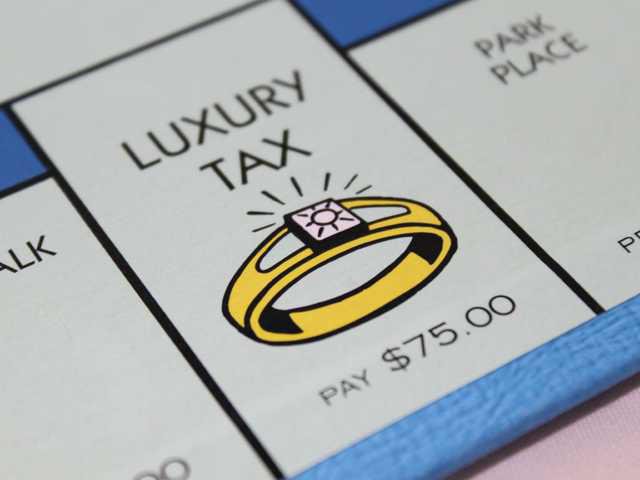The pain of the tax season is beginning to fade a little, but was that pain fair? A new survey by personal finance website WalletHub.com finds that many Americans think the tax code needs an injection of fairness — regardless of whether it hurts the economy.
Just how important is tax fairness to Americans? WalletHub's Tax Fairness Survey found that Americans think "tax fairness (61.23 percent) and tax equality (20.81 percent) are more important than whatever is best for the economy (17.96 percent)."
But the idea of fairness doesn't mean Americans don't want some to pay more. The survey found that 65.1 percent want corporations to face higher tax rates than consumers.
WalletHub asked several economists if they thought taxing corporations was a good idea. "Probably not," said Richard Beck at New York Law School. "Economists disagree about who actually pays the corporate tax, but it is clear that at least some of it is passed through to consumers in the form of higher prices. Better to do it directly with a sales tax instead. Also, corporations that aren't profitable don't have to pay the tax. That subsidizes losing businesses."
The survey also found that 90 percent of Americans "believe income from investments should be taxed at least as much as wages."
J.D. Hayworth, host of "America's Forum" on Newsmax, spoke with WalletHub.com CEO Odysseas Papadimitriou and balked that so many Americans think investments should be taxed at the same rate as (or higher than) wages.
"Presumably, with someone who doesn't have savings or investment, they think, 'Oh, well, we'll make it equal and tax it across the board,' not understanding the importance of having investments for old age, etc., taxed at a level that is not the same as wages." Hayworth said, assuming the result was possibly because the poll interviewed a demographic with less wealth.
Papadimitriou said he was surprised that this belief actually held true across the socio-economic levels. "The higher income folks are not saying, 'No that is not fair.' They are actually in agreement as well that wages should be taxed at the same rate as investment."
WalletHub also asked experts what they thought about equalizing taxes on investments and wages. Robert G. Nassau at Syracuse University said, "I believe that ALL income should be taxed at the same rate. Money is money."
The survey showed that a large majority (80 percent) thought the code was complex, but there was little support (24.31 percent) for a flat tax — a proposal often put forth to make the tax code simple and more fair.
Many Americans had one way they wanted to simplify the tax code, according to the survey: "More than 40 percent of respondents (44.2 percent) believe the fairest possible tax code would have fewer deductions than today."
Email: mdegroote@deseretnews.comTwitter: @degroote








